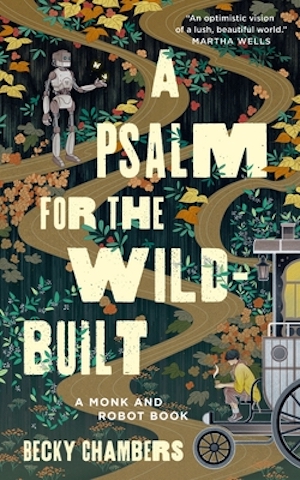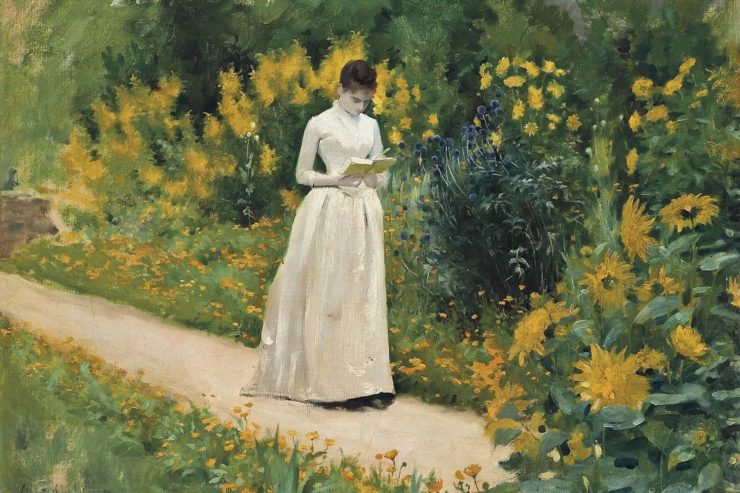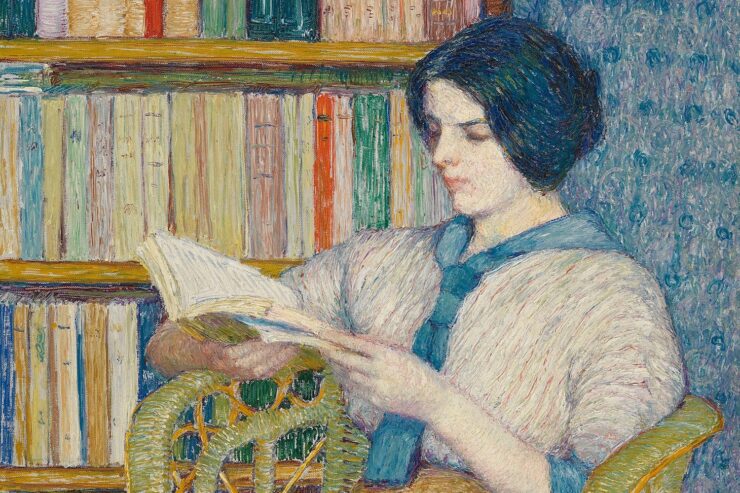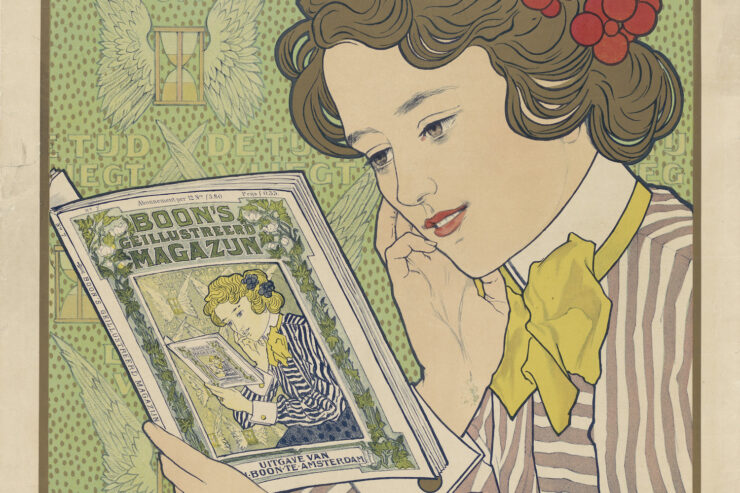It’s been a year for comfort reads. There are so many lists of books like a hug, books like a warm blanket, books like a hot cup of cocoa (with your preferred variety of milk). They’re really good books of a certain kind—books where there may be drama, but things work out; where people are kind and problems are manageable; where the laughs are rich and meaning is found in unexpected, welcoming places.
None of those lists have my kind of comfort reads on them.
When things started to get extremely difficult and strange last year, I couldn’t read for a while. Instead, I buried myself in TV series that, for the most part, focused on people who were having a very bad time in space. It was unexpectedly soothing to remember that I will never be chased through an abandoned spaceship by a killer robot, like on Lost in Space, or suffering … whatever actually happened on Nightflyers. When I ran out of space stress, I rewatched most of The Magicians, a show I adore the most when it’s making me cry the hardest. Everyone else’s pain made reality a little bit easier to deal with.
And eventually, when I remembered how to focus long enough to read a book, I reread Wicked, a book not just about a witch and her watery fate, but about anger and power and, running through all of it, an overwhelming, debilitating grief.
“Horrors” is the first word out of little green Elphaba Thropp’s mouth. I wanted to call this column “Comfort Me With Horrors,” but it was too likely to be misleading: Horror, much as I want to read it, is a step too far for me. It gets into my head and flips a switch, and I can no longer appreciate the contrast between me and the story; I just imagine it happening to me. I can’t keep that separation, that “This is not my life” perspective that stressful space stories allow. And I hate being scared. I respect horror, but I keep a certain distance.
“Horrors,” says Elphie, curiously, watching how the adults respond. The sharp-toothed girl from a forgotten corner of Oz eventually grows up, meets Dorothy; you know how that turns out. It does not turn out like it does in the musical version of Wicked, which is the rare piece of popular entertainment that genuinely made my jaw drop. I should have seen it coming. Incredibly popular Broadway shows do not have bittersweet endings in which the protagonist dies. But Elphie’s story, as Gregory Maguire tells it, is so deep in my bones that it never crossed my mind how drastically it could be changed.
Elphaba is a weird girl at college, green and rural and totally clueless about how things work. She’s a weird girl who believes in the rights of the sentient Animals, who fights against the tyranny of the Wizard, who falls in love with a married man and sees her relationship end in tragedy. The depths of her grief are on the page in her silences, her isolation, in the way she wants to ask forgiveness and yet can’t entirely bring herself to say the words. Elphaba doesn’t deal with her grief in any prescribed or helpful ways—and that, more than anything, makes me love her. Grief is unmanageable, uncontrollable, and yet there’s never any room for it in American culture. It doesn’t go away, yet we’re hardly supposed to show it. There’s no ritual, or practice, or grace. But there are stories full of people who have dealt with their pain, or not dealt with it, or made an absolute mess with their disaster feelings and still come out the other side. Those stories are my comfort reads.
You know when you love a book so much, you feel protective about it? That’s how I feel about Wicked, which I read in college, and then reread in the darkest of times. I read it aloud to my mother after my stepfather died, and the scene in which Elphaba makes fun of Glinda and her suitor in a kitchen garden is indelibly linked with that cold winter—a bright spot of joy in the midst of a baffling time. It had been ages since I last went to Maguire’s Oz, and when I picked the book up last year, I gasped at how raw it is. It’s funny and wry and clever, and it’s full of raw feeling, dripping with loss, frustration, and grief.
There’s comfort in the rawness. Comfort can be hope and heartwarming, and it can be a beautiful or affecting version of the most difficult, unnameable feelings. I read a book like Wicked to be reminded that other people feel these things. I read it to remind myself that the story you tell and the story the world tells about you often have nothing to do with one another.
Buy the Book


A Psalm for the Wild-Built
I read another book for comfort on that front: Franny Billingsley’s underrated YA novel Chime, which is about a girl named Briony who is absolutely convinced she’s a witch. She has told herself this story so many times that she’s almost forgotten that it’s just one story. Chime is the comfort of being reminded that we are made of stories, and the ones we tell ourselves matter, even if we never tell them to anyone else. Those stories make paths in our minds and we walk and re-walk them, wearing the tread deeper, until it’s incredibly hard to step onto a new path. Briony’s determination to believe the worst makes her complicated, prickly, and—if you sympathize with her the way I do—soothing. She can change. We can, too.
Sometimes, I just want to cry. Sometimes, comfort is watching “Unfinished Business,” the episode of Battlestar Galactica where they box out their messy, troubling feelings. Kara Thrace and Lee Adama, bloodied and exhausted, leaning on each other at the end? That’s comfort for me: pushing through the hard, ugly parts, looking them square in the face, and knowing that, while not everything has been fixed, a shift has taken place. Maybe it’s between two people; maybe it’s in the world. (The end of The Stone Sky is this feeling, perfectly.) Maybe it’s just that first light of morning.
It’s a precise cocktail, one often made up of darkness and disaffected women who can’t seem to find their places in the world. They aren’t chosen ones or triumphant heroines. And to be honest, there aren’t enough of them. I want more characters like Xochi, in Michelle Ruiz Keil’s All of Us With Wings, building a tricky family and reluctantly facing a painful past. Like the girl named Jake in Evie Wyld’s All the Birds, Singing, a creepy masterpiece of atmosphere and withdrawal. Like all of Sarah McCarry’s heroines, led astray by music and magic.
Reading about people processing the hardest things is the most comforting thing I can think of—there’s so much power in the mistakes, the missteps, the frustration, the love, the heart required to grow and change, or at least take the first steps on the way to trying. Give me a bittersweet ending, a soupçon of hope, the sense that change is coming, if not here just yet. Give me a book about a sad witch, and let me find the comfort in it.
Molly Templeton lives and writes in Oregon, and spends as much time as possible in the woods.














